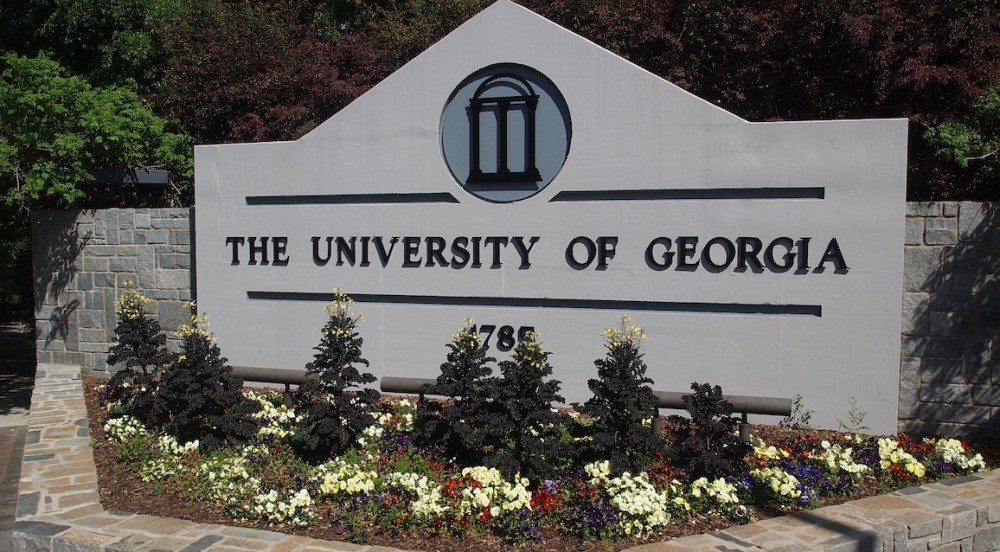Over 50 years ago, a Black community in Linnentown, Georgia was destroyed to make way for the expansion of the University of Georgia. According to NBC News, their descendants are now demanding that the university pay them reparations for their ancestors being displaced.
According to Athens-Clarke County documents, the Housing Act of 1949, a federal urban renewal program, played a crucial role in gentrifying the all-Black neighborhood. The legislation sought to transform “blighted” neighborhoods in order to build public housing or private commercial properties in the same location.
Eminent domain was deployed by the city of Athen, Georgia to remove 50 Black families out of Linnentown on behalf of the university. The documents state that the University System of Georgia secured an “urban renewal contract” with the city to “clear out the total slum area which now exists off Baxter Street.” Once they took over ownership of the land, the university constructed parking lots and dormitories. As payment for their troubles, the residents of Linnentown received as little as $1,450, around $12,000 today, for their seized properties, according to county documents.
Hattie Thomas Whitehead, a former resident, still has treasured memories of her childhood in Linnentown, a thriving, all Black 22-acre neighborhood at the time. The town had plumbers, electricians, construction workers, beauticians and was a self-sustaining community.
“We were happy children,” Whitehead recalled. “It was a close-knit community in the Deep South before integration. We had a play area that the teenagers built for us. We had family Easter egg hunts. We had community baseball games. We played all over the community. Until urban renewal hit.”
A half-century later, Whitehead and a group of fellow former residents and descendants of residents created the Linnentown Project. Their goal is to pay tribute to the history of the community and to lobby the city to recognize and make amends for the loss. Formed in 2019, Kelly Girtz, Mayor of Athens, along with the Clarke County Commission approved a resolution in support of the project this year.
As stated in the resolution, the county has pledged to publicly acknowledge the grave injustice by the city and the university and to work with the university system to build a physical “Wall of Recognition.” Additionally, the county promised to allocate city funds to improve impoverished communities, to connect with the university to create a center on slavery, Jim Crow, and the future of Athens' Black communities, to create a more equitable regulatory property acquisition partnership between the county and the university system, and to urge the General Assembly to establish an authority to recognize and provide redress for systemic racism in Georgia.
In February, Girtz apologized on behalf of the county to Athenians displaced by urban renewal projects.
“I think it’s important to recognize that apology is a strength,” Girtz said at the urban renewal proclamation ceremony. “It’s a strength of recognition. It’s a strength that as we atone for those things that we would not do today, we learn to walk a better path.”
While members of the group commended the mayor's and the county’s efforts, officials of the University of Georgia have been slow to acknowledge the vision of the group and their culpability in the displacement of Black residents over five decades ago.
“We’ve had some resistance. UGA has not acknowledged us as a team,” Whitehead explained. “We asked to put a wall of recognition down where Linnentown was. ... They would not allow us to put it on their property. They are not at the table with us. I have written letters to President [Jere] Morehead. Initially, they were completely silent, then they replied but with nothing that would bring them to the table. They have continued to ignore the team.
Whitehead and other members of the group have requested that the school change the name of Russell residence hall to Linnentown Hall.
Although steps have been taken to address the displacement, some members of the Linnentown project believe that reparations should come in the form of financial payments
“We want money,” Crook told the Atlanta Journal-Constitution. “As a child growing up, Linnentown was always a social place. I remember coming home from school and everybody was crying and carrying on about UGA taking our house.”
Brent Cebul, an assistant professor of history at the University of Pennsylvania, said the country has yet to fully reckon with how the displacement of entire Black communities led to growing inequality, poverty, and economic injustice that is still an undeniable reality today.
“At a moment when African Americans were finally gaining formal political and civil rights, to have some of the longest-lived communities, property ownership, businesses wiped off the face of these cities is clearly a major, major handicap in the process of finding a more equal United States," he said.
“There are people who are very much alive today who had their communities ripped apart,” he added. “That loss of community is a really significant destabilizing factor in people’s lives, the loss of kinship and social networks that provide support.”













